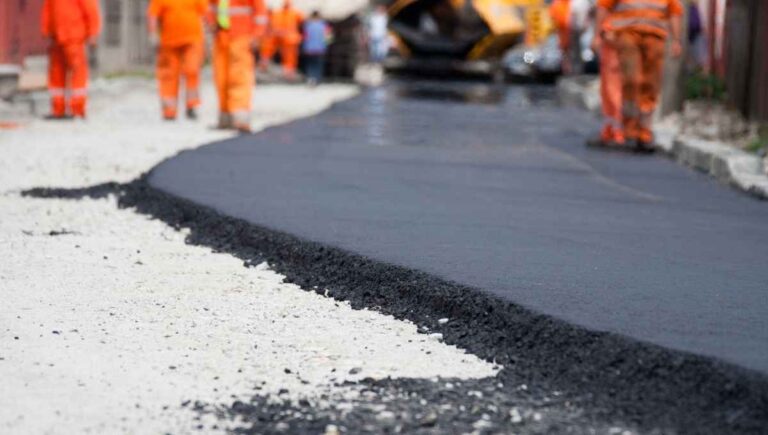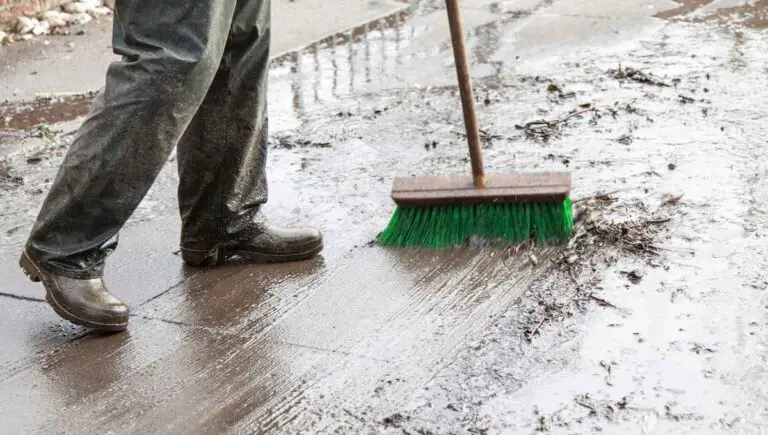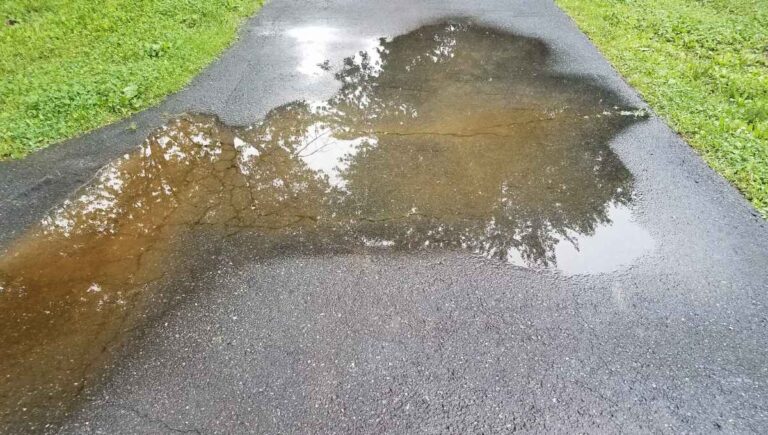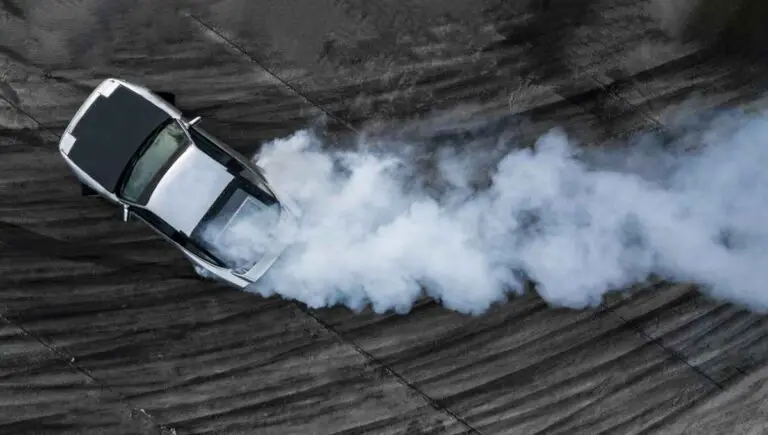Does Driveway Salt Kill Grass? (You Should Use This Kind)
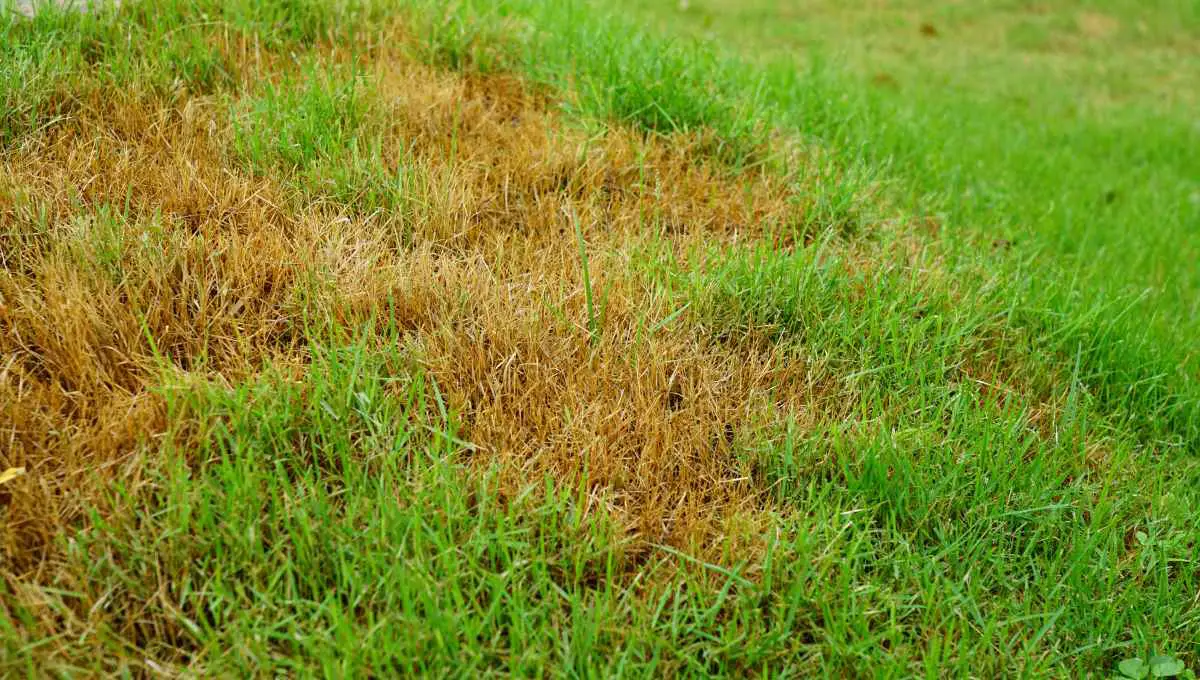
If you live somewhere where winter means snow and ice, you are probably familiar with driveway salt. Driveway salt helps melt ice and snow faster, so your driveway is safe to use. But does driveway salt kill grass?
Unfortunately, traditional driveway salt can kill grass and plants. The salt works by drawing moisture from the surrounding area, including your lawn, causing it to dry out and potentially die.
Not all is lost, however. There are certain kinds of ice melt that will not harm your lawn. Additionally, we have some tips and tricks to share to prevent your lawn from ever coming in contact with driveway salt!
This post contains affiliate links from Amazon and other stores. This means Yard Blogger may earn a commission if you make a purchase using any of our links. Please refer to our full affiliate disclosure policy for full details.
Here’s a Quick Pro Tip!
Before winter comes, consider building in some protection for your lawn and garden with one of these great options:
1. Fencing – Place between your lawn and the road to prevent salt trucks from spreading bring onto your yard.
2. Burlap – Cover the plants you don’t want to be exposed to salt.
3. Driveway Salt Spreader – Control the spread of salt so it doesn’t reach your yard.
Saving the Grass from Driveway Salt
Carelessly throwing down driveway salt and allowing it to spread from your driveway to the grass will almost definitely lead to the demise of your grass.
Instead, use caution when distributing your driveway salt to prevent dead grass come spring.
Driveway salt kills grass because salt is primarily made up of sodium chloride. It pulls moisture out of things; for example, salt can be used to preserve foods like beef jerky.
You can also apply this principle to roads and driveways. Adding salt to the drive before or even after an ice storm can help remove ice build-up.
If you want to prevent your driveway salt from getting all over the place, you’ll need to be able to control where the salt goes. This is easy to do while placing the salt initially; you can pour it exactly where you want it.
However, when the ice starts melting, the water runoff will still contain salt, and if that gets on your grass, it will kill it.
To prevent that, you may want to consider installing grates along your driveway, which will catch any salty water and prevent it from ever hitting the grass.
It Doesn’t Have to Be Bad for Your Lawn
There is good news for those who don’t want to go through the hassle of installing grates before winter! Instead of using driveway salt to get rid of ice, consider using an ice melt. Ice melts are better for the environment, your lawn, and your driveway.
These ice melts contain magnesium chloride instead of potassium chloride, which still melts ice and snow, but does it more quickly and with less toxic chemicals, making it safer for your driveway and lawn.
In addition, make sure you have an ice melt that is pet safe! Many pets and wild animals like the taste of salt and will lick up any salt that’s tracked into your home or available outside because they think it’s a treat. However, many salt brands contain other chemicals which can be harmful.
Not only are these chemicals harmful if ingested, but they can also burn your pet’s paws if they are in prolonged contact with the ground! So, all in all, it’s much safer to use an ice melt without harsh chemicals.
Alternatives to Driveway Salt
As we’ve already mentioned, one choice if you’re trying to avoid using driveway salt, is to use ice melt. However, there are other options if ice melt isn’t your thing, either. Consider using one of these alternatives next time it snows:
- Kitty Litter – Absorbs liquid and provides great traction on snow and ice.
- Sand – Better for the environment and provides traction.
- Rubbing Alcohol – Dehydrates like salt, but better for your lawn.
- Alfalfa Meal Fertilizer – Helps your grass, aids in melting snow and ice, and is good for your lawn!
- Ice Melt – Better for lawns and safer for pets!
We know that some of these may sound strange, but they do work! Take it from someone who once used oatmeal to provide enough traction to get from the car to the house (true story!) Sometimes you just need a little help melting the ice.
Protecting from Street Salt
If you are noticing dry, dead patches of grass on your lawn from your neighborhood snow plows throwing salt everywhere, there is a solution.
You can protect your lawn from road salt by barricading your lawn to protect it from road salt.
You have a few options to protect your lawn, but it makes sense to add a temporary barricade, such as mesh fencing, to prevent snow plows from being able to throw snow at your lawn while they’re clearing the street.
You can also use burlap to protect your plants and block your garden from getting hit with salt during the winter season. In addition, burlap allows your plants to breathe without opening them up to the elements.
Using Driveway Salt as Weed Killer
Once winter ends, you will probably have some leftover rock salt. So what do you do with it? You can just store it until next year, but it’s bulky. There is good news, however. You can use rock salt to kill weeds!
Just use caution spreading rock salt; it will kill plants and grass just as easily as the weeds you’re looking to eliminate.
However, if you want to ensure that grass and weeds will not pop in between your pavers or on a walkway, adding rock salt in the crevices is an excellent idea.
If the ground has been salted, it becomes unable to support life, so you should not have to keep picking weeds. They won’t regrow once you’ve gotten salt into the dirt.
You can either place the salt on its own or make a brine solution from salt and water and spray it on the affected areas.
How To Make Your Own Salt Solution
It’s not difficult to make your own weed-killer solution using rock salt. You can make a very simple solution using one part salt to two parts water. Then, just put that mixture into a spray bottle and spray your weeds, targeting the leaves, not the roots.
You don’t want to soak the soil if you can help it because you don’t want to mess up the PH in the soil, as it will prevent anything from growing within that space again. You want to kill the weeds; you don’t want to salt the earth.
It will take a few days for your solution to show results, so don’t panic if it doesn’t work immediately. You should see the weeds starting to wither and die within a week.
If not, consider using a stronger mixture made of equal parts salt and water.
You might also enjoy our post on How Tall Should Driveway Markers Be?
Final Thoughts
Salt has some great uses! It breaks down snow and ice and provides traction during snow storms. You can also use it to kill weeds. However, you have to be careful. Salt doesn’t discriminate, and it will kill any plants exposed to it.
Luckily, there are ways to prevent salt from getting where you don’t want it.
For example, using a barricade to prevent salt from spreading on your lawn ensures that the driveway salt won’t kill your grass and can protect your plants from harsh winter weather conditions.
Finally, you can use a saltwater solution as an eco-friendly weed killer. Just make sure you spray the plant and not the ground. Otherwise, you’ll kill the dirt, and nothing else will grow there.

